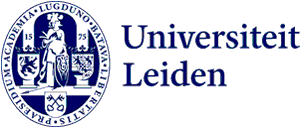Mara on nomination Thesis Prize: Recession affects young people's trust in EU
She did not win, but was very happy with her nomination for the Leiden University Thesis Prize. Mara Seisselberg was nominated with her thesis 'The relationship between experiencing a recession during the formative years of an individual's early adulthood and their long-term sentiments towards the EU'. In this monologue, the former student of Public Administration (MPA, track Economics & Governance) talks about her thesis.

Mara: ‘My thesis assesses whether differences in individuals’ EU-sentiments can (partly) be attributed to variation in the macroeconomic environment experienced during the critical years of early adulthood.
In psychology and neuroscience, it has been argued that the impressionable years, defined as the ages of 18 until 25, play a particularly import role for the formation of people’s attitudes and beliefs, as during this period individuals are particularly susceptive in regard to their external environment.
My thesis assesses whether macroeconomic environment when young plays a significant role in an individual’s formation of long-term sentiments towards the EU. It exploits time and country variation in macroeconomic conditions and controls for a broad set of individual socio-economic characteristics, as well as for time, country, life-cycle, and cohort fixed effects.
My empirical results illustrate that experiencing recessions during one’s impressionable years has a negative effect on long-term EU-sentiment formation. It finds that individuals who experience a recession when young are significantly less trustful towards the EU and its institutions, and that these individuals have significantly higher fears that the EU will erode social security and lead to loss of jobs, national identity and culture than cohorts who did not.
These findings bear special relevance in light of the current coronavirus pandemic, as they entail that this recession can have significant repercussions on EU-support and legitimacy and on Eurosceptic voting behaviour among the my generation.
What I observed across my peers and on myself in our impressionable years during the Covid pandemic and recession is that economic insecurity and instability have significantly affected our investment and job preferences. I kept asking myself: will this recession also affect my generation’s long-term attitudes towards the EU and drive Eurosceptic voting? This is how I decided to pursue this topic within my thesis.
After graduating in summer 2021, I started to work as Project Officer at the Organization for Security and Co-operation in Europe (OSCE) on the organized crime portfolio. In this role I assist requesting participating States in strengthening their capacities to fight and prevent organized crime and in enhancing international cooperation in this field.’
Read more on the Thesis Prize here.
